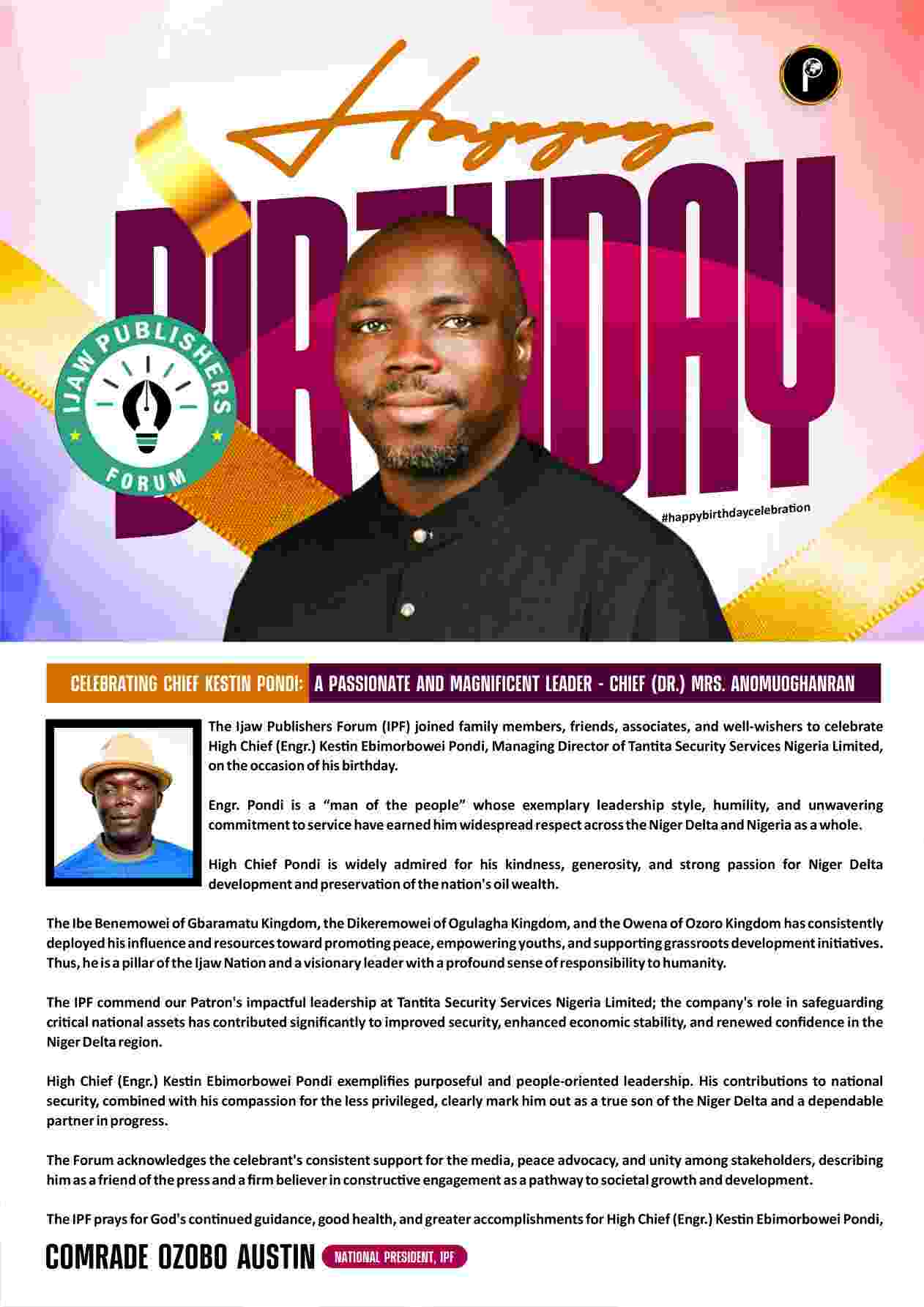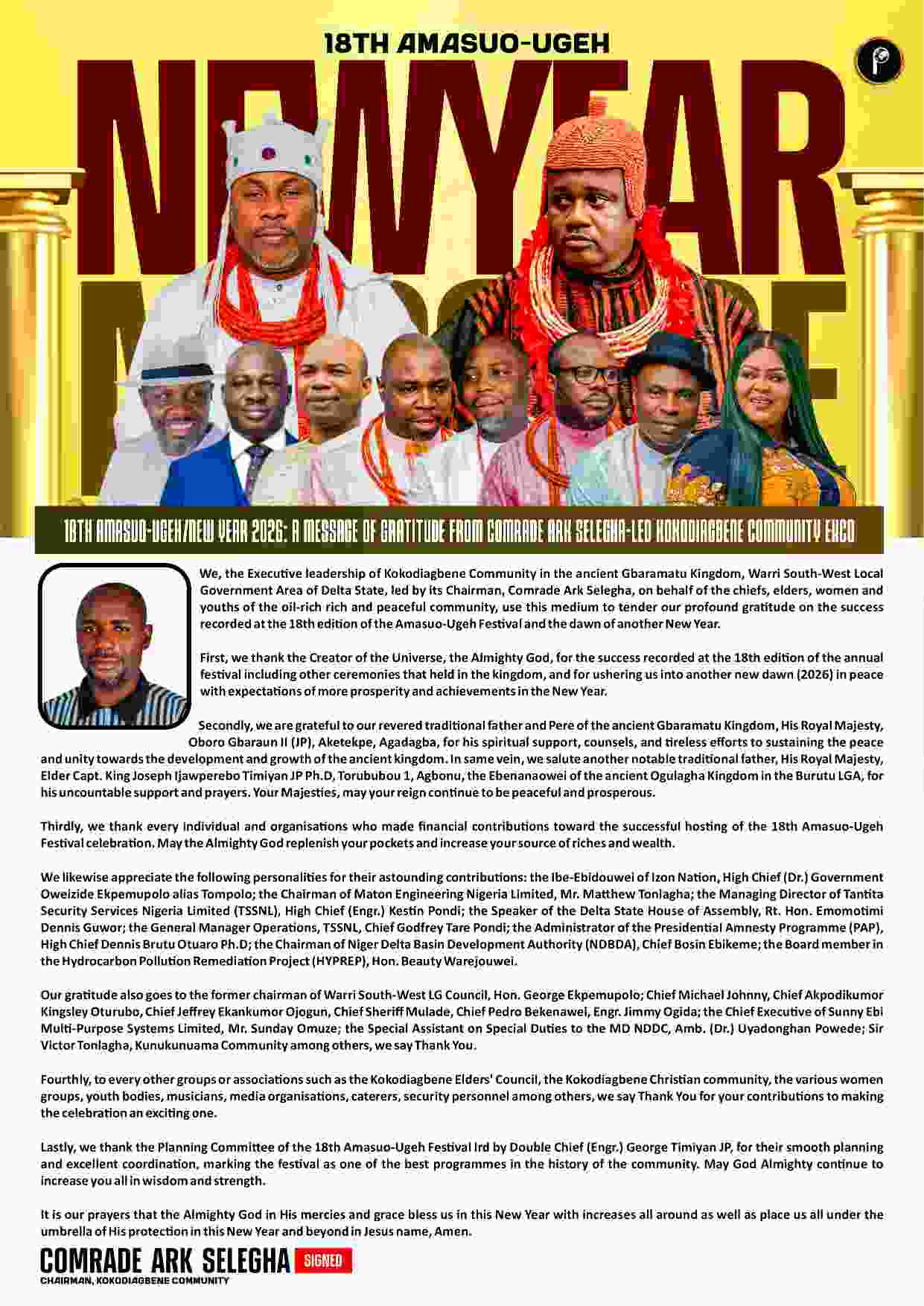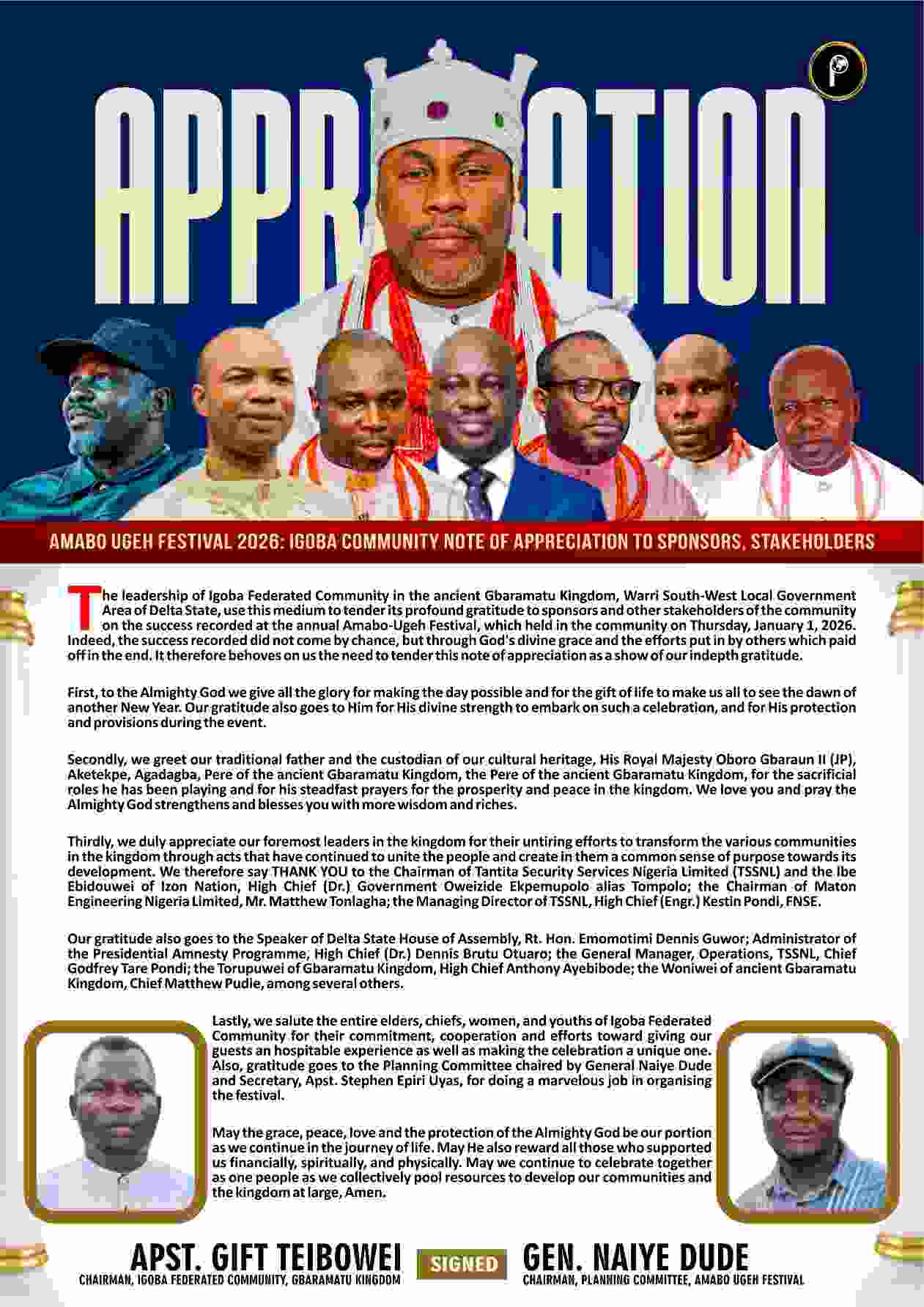AZAMA: The Ancient 'New Town' By Abai Francis
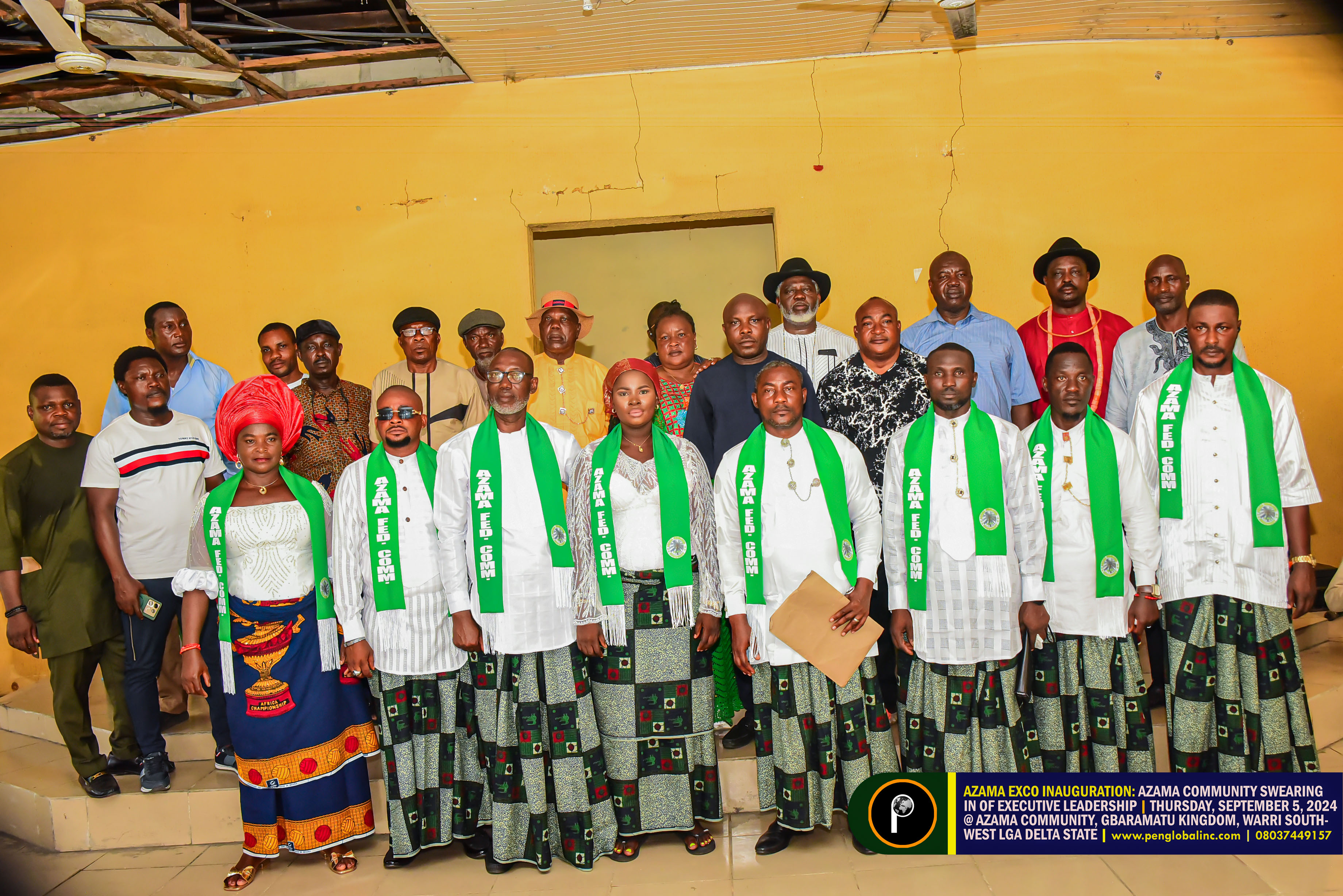
Azama, birthed from the co-joined Ijaw words – 'Aza-ama' – when interpreted in the English language means a 'New Town'. Azama community, one of the major settlements in the ancient Gbaramatu Kingdom, Warri South-West Local Government Area of Delta State, came alive when it recently, precisely on Thursday, September 5, 2024, inaugurated a new set of executive leadership.
The riverine community, among other high profile leaders in the kingdom, is home to the prominent and current Fiyewei of Gbaramatu Kingdom (formerly the holder of the Ibe-Benemowei), High Chief Amb. Dr. Godspower Gbenekama JP, who was a dignified candidate for the prestigious title after the demise of the late High Chief Dr. Alfred Bubor JP (of blessed memory).
The 'New Town' is also home to High Chief (Barr.) Bosin Ebikeme, a former Commissioner of Transport in Delta State (during Governor James Ibori administration), a Special Adviser to the Delta State Governor Dr. Ifeanyi Okowa on Petroleum Matters, and the Director General, Contacts and Mobilization in the All Progressives Congress (APC) Ovie Omo-Agege Campaign Organization.
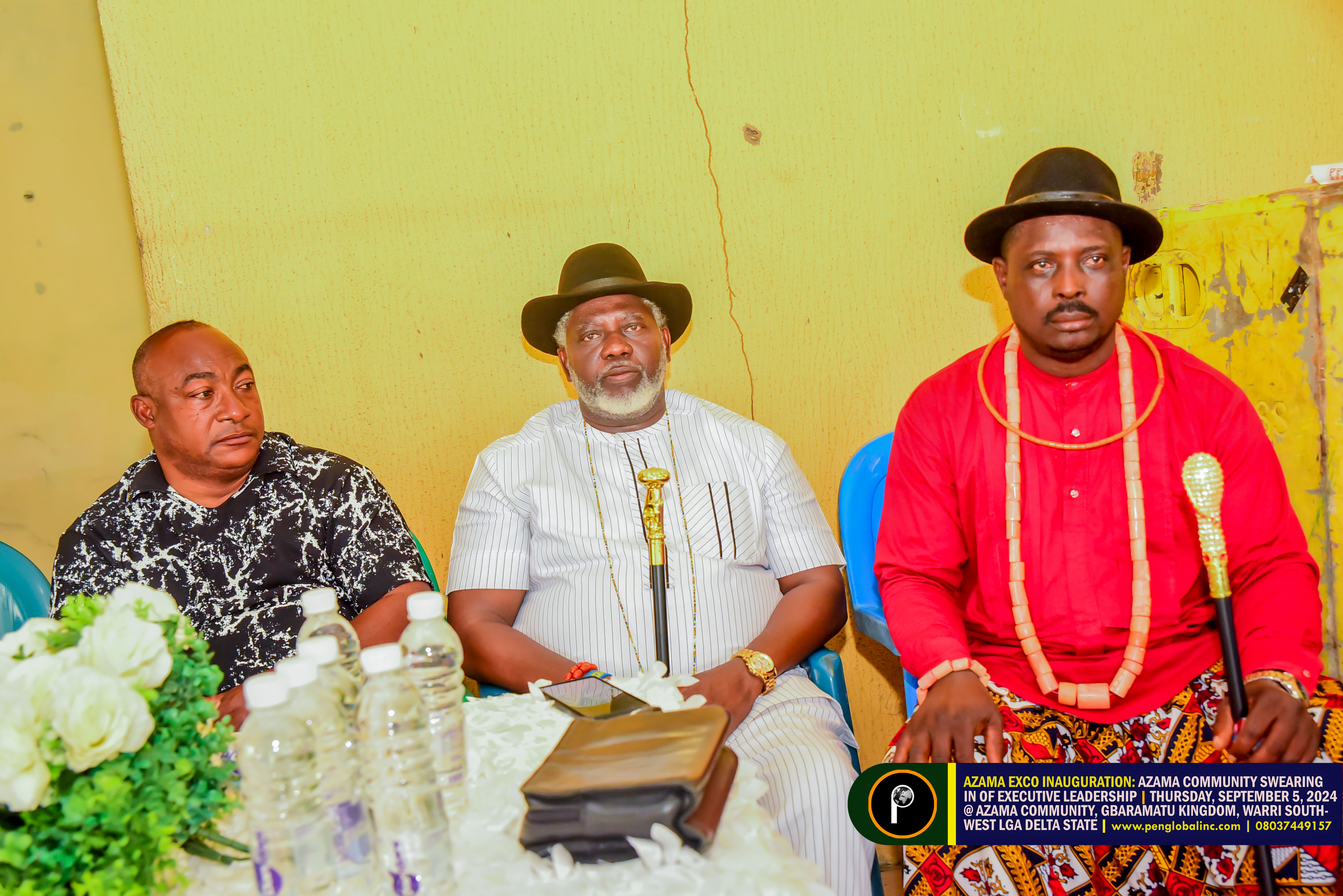
The community is also home to High Chief Matthew Ebifiyebebe Pudie, the Public Relations Officer (P.R.O) of the Gbaramatu Kingdom Traditional Council of Chiefs, as well as Elder Jeremiah Oritsejolone, Project Manager at the Niger Delta Development Commission (NDDC).
Asides personalities, the ancient 'New Town' is reputed in the Gbaramatu Clan as the first to host a school (primary), a church (St. Andrew's Anglican Church) as well as produced the first lawyer in the person of High Chief (Barr.) Ebikeme.
Economically, its inhabitants, like their counterparts in other sister communities in the kingdom, mainly ply the fishing trade. But the 'New Town' also has a dominant place in the wood industry (that needed some regulations to prevent deforestation) and host natural vegetations that produces some agricultural fruits and medicinal herbs. The rate of deforestation coupled with pollution (from the oil industry) has however inflicted damages to its vegetation. The once palm fruit trees are no more and the community needs seashore protection against sea encroachment.
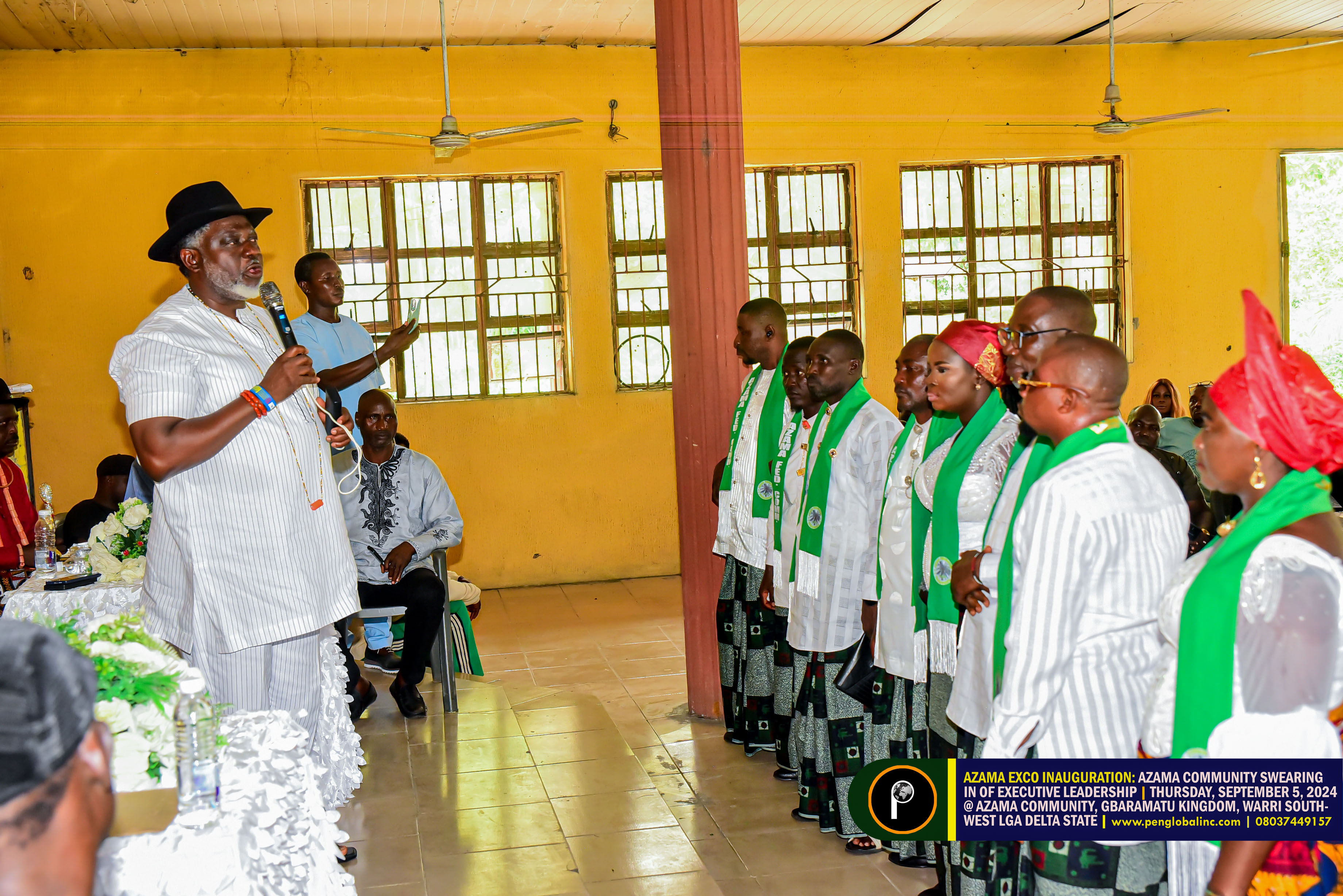
As with other communities in the kingdom, the ancient 'New Town' generates its own power (electricity) through diesel-powered plants which comes up only at nightfall. Recently, through the Nigeria Gas Company (NGC), the community was connected to a gas turbine for constant power supply, however, just barely a few weeks after it came on stream, the project suffered a setback, plunging the community into darkness all over again. As at the time of writing, power has not been restored. However, at nightfall, through High Chief Dr. Dennis Otuaro's initiative (now the Administrator of the Presidential Amnesty Programme, PAP), the NDDC's solar power light-up project was extended to the 'New Town', lighting it up at night.
But despite its reputable standing in the history of the Gbaramatu Clan, the ancient 'New Town' which has refused to grow old is still lacking certain needed infrastructures like motorable walkways, schools (none currently exists), a telecommunication mast, well-equipoed health facility (although one healthcare centre is in operation). The community is therefore in need of some government interventions in the above infrastructures and more. For instance, there is the need for interventions in the areas of housing, transport, and soft-business-credit scheme to encourage entrepreneurship in the rural riverine areas to drive growth and development.
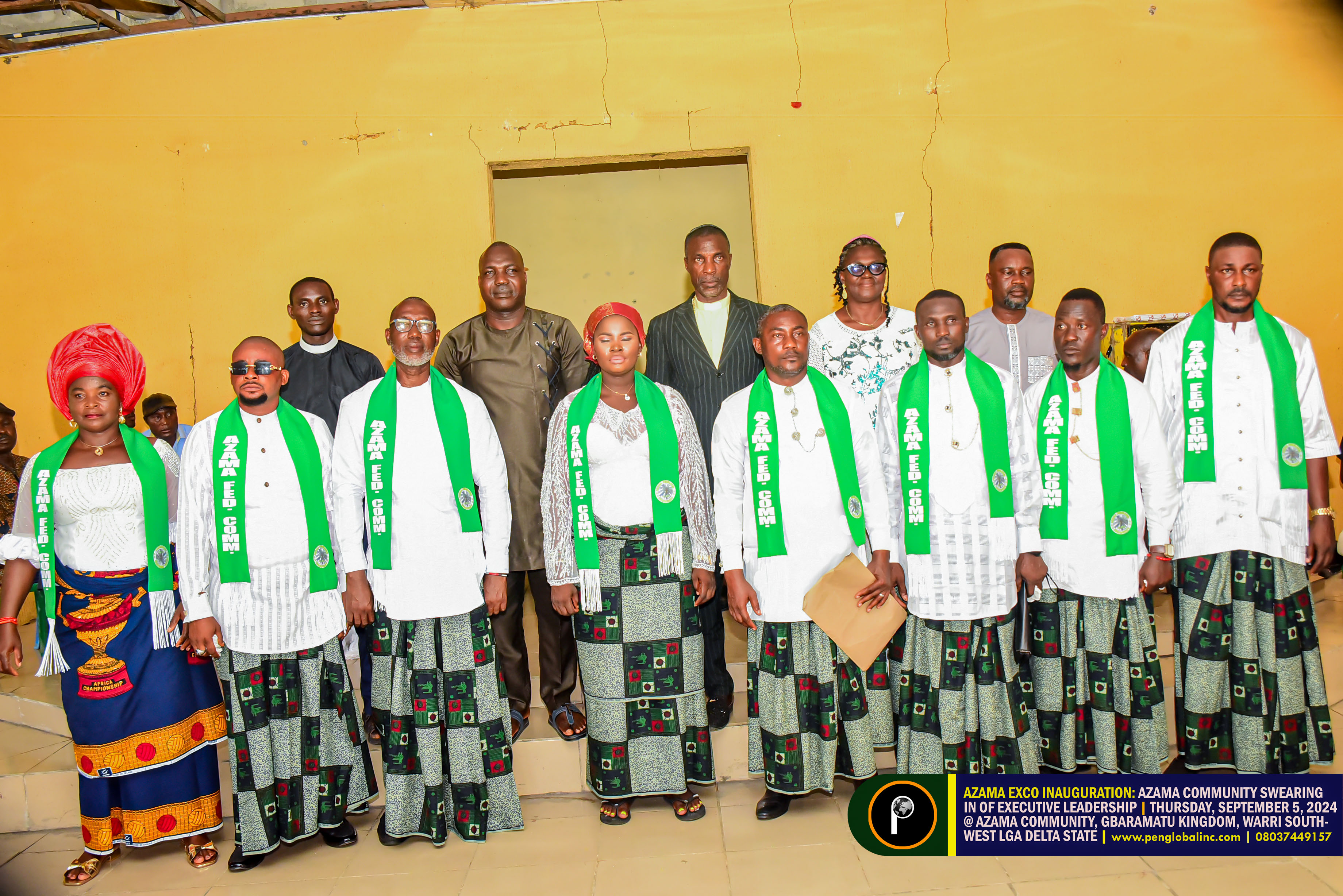
As the ancient 'New Town' wears a new look, courtesy of its new executive council as led by a seafarer, Comr. Arthur Gbenekama, it is hoped that the ancient 'New Town', with its compére of luminary personalities, will add to its historic mark by reining in the much needed transformational change that will place it as an enviable settlement in the clan of Gbaramatu.
View more photos on PENGlobal Facebook page:
#penglobalsocial #Azama #Gbaramatu
